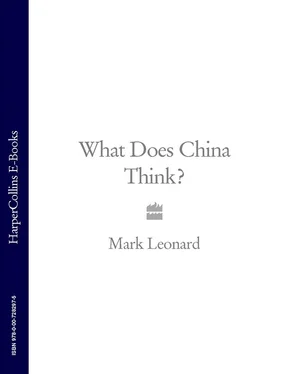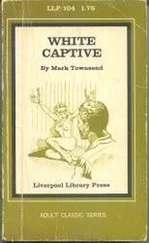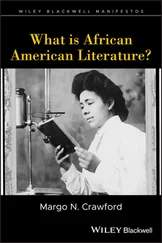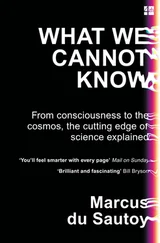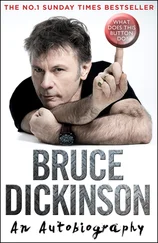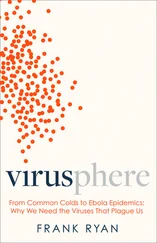For good and for ill, modernization became synonymous with Americanization in the 1980s and 1990s. At a superficial level, Communist China shed its red skin, and grew a new one branded with the symbols of mass consumerism – Starbucks penetrated the walls of the Forbidden City, McDonald’s and KFC signs lit up the high streets and malls of urban China, and kids learnt to cuss each other with Hollywood-inspired jibes: ‘get real!’ As the political scientist Yu Keping argues, ‘The American dream is the highest ideal for the young generation that grew up since the reforms. Everything in the USA, including American people, institutions, economy, culture and country, is so perfect that the American moon has become more round than the one in China!’
At a deeper level, China was forced to accommodate itself to the rules of a globalized world shaped by American capital and American military power. In this era – christened the ‘flat world’ by the journalist Thomas Friedman – all nation states are losing control of their fates: pushed out of the economic sphere by privatization, out of the political sphere by a ‘Third Wave’ of democratization, and out of the foreign policy realm by the stateless forces of capital, terrorism and trade. Many Chinese thinkers worry that by embracing the economic benefits of globalization, China risks being ‘flattened’ by an accompanying American political ideology.
Wang Xiaodong, one of a new breed of Chinese nationalists, argues that the embrace of American ideas springs from a kind of self-hatred. According to him, many Beijing intellectuals in the 1980s saw the Chinese people as an inferior nation with an inferior history: ‘In my opinion, this is not very different from Hitler’s racism,’ he claims, ‘the only difference between them [i.e. Chinese intellectuals] and Hitler was that they [i.e. the Chinese] directed this [hatred] against their own race. This is why I coined the term “reverse racism”.’ Although Wang Xiaodong’s analogy seems extreme and misplaced to many Chinese as well as Western ears, his arguments are symptomatic of a pervasive sense of intellectual insecurity that has driven China’s swings from one extreme ideology to the next.
In 1993, Cui Zhiyuan, a Tsinghua University professor who was then teaching at Massachusetts Institute of Technology, wrote a seminal article calling for a new ‘Liberation of Thought’, arguing that after freeing themselves from orthodox Marxism, Chinese intellectuals should liberate themselves from their unquestioning admiration of Western capitalism. His goal was to break the boom and bust cycle that saw China embrace a new ideology every generation, and to encourage Chinese people to think for themselves. Rather than accepting the mantra that ‘there is no alternative’ to the neo-liberal agenda, he argued that China should draw on many sources to develop a new way, or as he put it an ‘alternative modernity’.
His call initially fell on deaf ears. China was still reeling from the Tiananmen massacre. Most of its intellectuals were cowed by the government’s violent response to the protests, co-opted by the Communist Party or living in exile. Party leaders were restarting their economic reforms. And the rest of the elite were too busy making money. But Cui Zhiyuan’s ideas are having an impact today, as China’s economic growth leads to a new self-confidence.
Even the nationalist Wang Xiaodong acknowledges that his country is outgrowing ‘reverse-racism’. In a recent talk, he cited the words of a well-known entrepreneur to make the point: ‘In the 1980s I went out of China for the first time, to Singapore … I was shocked by the culture, the technological progress, the urban splendour, the vibrancy of life. Our delegation dreamt “Could our country have a city like Singapore in fifty years time?” We were not hopeful. History has proven us wrong. It took just twenty-five years. Last year I went to Singapore, and in my view, it cannot compete with our Shenzhen, Dalian, Shanghai and Beijing.’
The self-confidence that comes from China’s economic miracle has – paradoxically – freed some of China’s thinkers to question the central tenets of the market revolution that produced it. Now that Chinese thinkers take their country’s giddy growth rates for granted, they are asking if the ideology of the 1980s and 1990s is really delivering all that it promised. Deng Xiaoping’s commitment to economic development, above all else, is being attacked by those who want to reduce inequality and stop the pillage of China’s environment. In the realm of political reform, some Chinese intellectuals are increasingly questioning whether liberal democracy is the right model for China in the long term. And in the realm of foreign policy, they are challenging the notion that nation states need to be marginalized by the stateless forces of globalization.
The intellectual emancipation that Cui Zhiyuan invoked is finally coming. In the same way that Europeans during the Enlightenment proclaimed that ‘God is dead’ and sought to craft a world in man’s image, Chinese intellectuals are today proclaiming their independence from foreign models and plotting the future on their own terms. The quest, according to the political scientist Gan Yang, is to draw on China’s historical experiences and create a new idea of modernity – rather than importing theories wholesale from abroad. He says:
Today we can see in China three traditions. One is the tradition forged during the twenty-eight years of the reform era … of ‘the market at the centre’ including a lot of concepts like freedom and rights. Another tradition was formed in the Mao Zedong era. Its main characteristics are striving for equality and justice. The last tradition was formed during the thousands of years of Chinese civilization, traditionally referred to as Confucian culture. In the past we have often behaved as if these three traditions were in conflict with each other. But they are not.
This is not the first time that Chinese have sought to combine foreign know-how with national identity. Confucian reformers in the nineteenth century strove to bolster the imperial system by using foreign ‘functional knowledge’ ( yong ) to preserve Chinese ‘essence’ ( ti ). And Deng Xiaoping labelled his market reforms ‘socialism with Chinese characteristics’. But where earlier generations started from a position of debilitating weakness, today’s reformers are coming to terms with China’s growing strength. And, what is more, this attempt is being bolstered by an intellectual debate raging beyond the halls of power.
This book is about the development of a new Chinese world-view. It shows how China’s quest for intellectual autonomy will act as the foundation for a new model of globalization. It follows the attempts by Chinese thinkers to reconcile competing goals; exploring how they can get access to global markets while protecting China from the gales of creative destruction they could unleash in its political and economic system. It shows how China will come to challenge the flat world of American globalization with a ‘Walled World’ of China’s own creation. Inspired by discussions with over 200 Chinese thinkers and officials over a period of three years, this book tries to chart China’s recent intellectual emancipation from Western ideas on economics, politics and global power, casting light on how Beijing’s new thinking could change the world order – thereby changing the West itself.
I do not purport to represent the multitude of views held by 1.4 billion people, or even the views of all Chinese intellectuals – many have been silenced by imprisonment, intimidation or exile. The thinkers represented in this volume are insiders. They have chosen to live in mainland China – learning to cope with the regime’s regular spasms of control and loosening up – in their quest to push for change within the system. Even they have sometimes fallen foul of China’s erratic censors. Several of the protagonists of this story have been stripped of important jobs in think-tanks and journals during the years that I have been writing this book – even as their ideas have received greater backing from the government. In spite of the ever-present threat of repression, incarcerations and censorship, intellectuals in China do count. Many of these thinkers have been called upon to brief presidents, prime ministers and senior party officials. In fact, they have more influence than their counterparts in many Western countries.
Читать дальше
